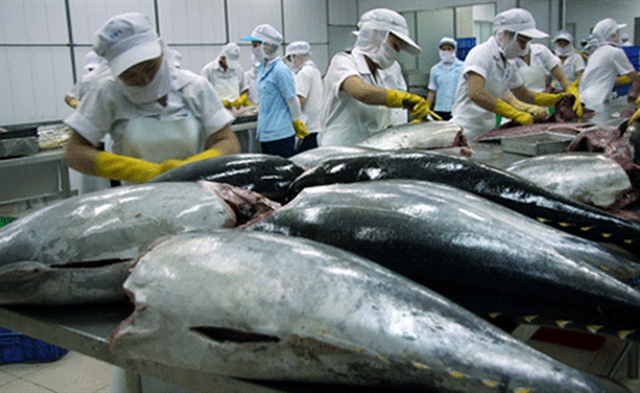With many similarities, the UK- Viet Nam Free Trade Agreement (UKVFTA) could be called a direct copy of the EU- Viet Nam Free Trade Agreement (EVFTA).

With many similarities, the UK- Viet Nam Free Trade Agreement (UKVFTA) could be called a direct copy of the EU- Viet Nam Free Trade Agreement (EVFTA).
In 14 sectors of UKVFTA, the UK allows Viet Nam to enjoy zero export tax with a certain quota, including for egg yolk and poultry meat, garlic, sweet corn, milled rice, tapioca starch, tuna, crab stick, fish cake, sugar and products containing a lot of sugar, mushrooms, ethanol, mannitol, sorbitol, dextrin, and other modified starches.
In the banking services sector, Viet Nam agreed to allow British credit institutions to raise foreign ownership to 49 per cent of chartered capital at a joint-stock commercial bank in the country.
Similar to the EVFTA, this commitment is only valid for five years (after which it will not bind Viet Nam). It does not apply to four joint stock commercial banks with a State controlling stake, namely BIDV, VietinBank, Vietcombank, and Agribank.
In addition, implementing the above commitment will mean fully complying with regulations on merger and acquisition procedures and safety and competition conditions, including a limit on ownership percentage.
Viet Nam allows EU financial institutions to buy up to 49 per cent at two domestic private banks while allowing the UK to raise the same or even higher rate for one bank (mainly HSBC and Standard Chartered Bank), increasing the holding ratio to the ceiling level.
Under the EVFTA, one signatory can provide subsidies to achieve a public policy objective. The parties acknowledge that some subsidies have the potential to distort the normal functioning of the market and undermine the benefits of the trade liberalisation mechanism.
In principle, a party may not subsidise businesses that supply goods or services if it negatively affects or is likely to affect competition and commerce.
For the UKVFTA, a party may not subsidise businesses providing goods or services if there is a negative impact or it is likely to affect trade between the two parties. In some areas, the EVFTA is more specific than UKVFTA.
For example, there are several notes on fruit and vegetables under normal tariffs in the European Commission's Implementation Regulations and Succession Act, which lays out detailed rules.
Binding Viet Nam to more specific regulations is an obvious UKVFTA strategy to ensure high-quality products and prevent poor-quality products from entering the UK.
For Viet Nam, to reposition after the pandemic, both the EVFTA and UKVFTA are important factors on the road to economic recovery.
After the pandemic, Viet Nam took advantage of an excellent opportunity to assert its position thanks to effective pandemic control.
In addition to the two FTAs, Viet Nam has made many other strides, especially the new Investment Law, helping the country emerge stronger from the crisis.
Viet Nam's economic repositioning goal is to reach pre-crisis levels and to continue growing to higher levels. Viet Nam's efforts will be successful, and most international analysts are optimistic about the country's prospects.
The EVFTA and UKVFTA represent the freedom and openness of Viet Nam, and these agreements are important factors for the country - especially with the new Investment Law and the EU-Viet Nam Investment Protection Agreement (EVIPA), making Viet Nam a more attractive destination for foreign investors. — VNS





